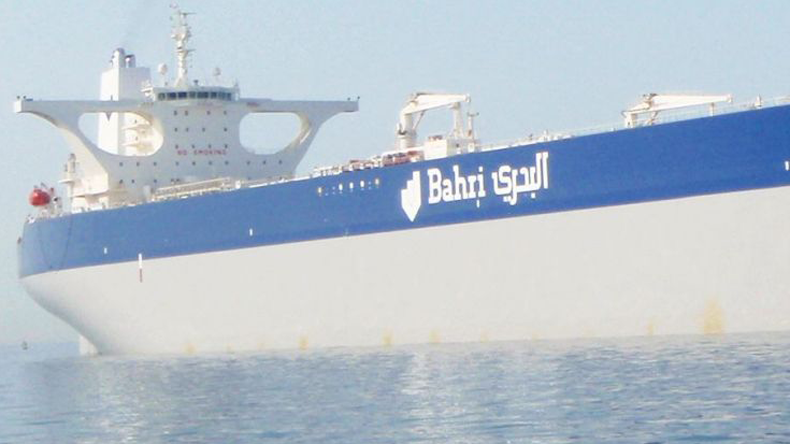Weekly briefing: Blanked sailings rise; oil glut boosts floating storage outlook
Also, dry bulk operators still hopeful for V-shaped economic recovery, some progress with crew changes
Blanked sailings for boxships continue to rise as the coronavirus outbreak hits containerised freight demand, while the unprecedented global oversupply of crude oil makes the economics of floating storage on tankers increasingly viable
THIS weekly briefing provides sector-by-sector coverage of the coronavirus outbreak and its impact on shipping, direct from the Lloyd’s List team. Follow the links within the text to the relevant news items in each market segment.
Lloyd’s List is launching a new series of monthly ‘Ask the Analysts’ webinars, where our international team of editorial experts and Lloyd’s List Intelligence colleagues will answer your questions on any aspect of the shipping industry.
The first event takes place on April 29 at 1430 BST.
To register to participate in the live session and to submit your question in advance, please follow this link.
Containers
Forecasts of a 10% fall in container volumes this year are looking more accurate following Ocean Network Express’ revelation that its liftings on the transpacific fell by 6.7% in the first quarter.
The figures, the first to show the true level of the impact of the coronavirus pandemic on containerised freight demand, emerged as the total number of blankings of boxship voyages rose to over 350 as carriers desperately sought to remove capacity from the market to meet the reduced demand.
The increase is due to a collapse in demand at the destination regions. This had led to 3m teu of capacity being taken out of service, or 2.4 times the usual blankings seen during Chinese New Year.
The closure of vast parts of the European and North American economies has devastated demand, with little relief in sight. The International Monetary Fund has forecast a downturn potentially equal to the Great Depression, which will offer little solace to container lines that rely on healthy consumption to ply their trade.
In Rotterdam, Europe’s leading container gateway, the outlook is for volumes to decline by up to a fifth this year.
“The impact of a decline in demand due to the coronavirus crisis will become clear from April onwards,” warned chief executive Allard Castelein. “A 10% to 20% drop in throughput volume on an annual basis would seem to be very likely. This will depend on how long the measures remain in place and on how quickly production and world trade recover.”
The one ray of light carriers have to hold onto is that the collapse in the price of oil means their costs are falling.
“Not only will it provide for a much-needed cash injection, because of the natural time lag of any bunker oil price cost pass through mechanism, or baf, but also presents a unique opportunity last seen saw when bunker prices dropped below $300 per tonne in 2016: sailing south of Africa, to avoid the Suez Canal toll,” said Sea-Intelligence chief executive Alan Murphy.
But this has not gone unnoticed by carriers’ customers, which last week called for greater transparency in bunker surcharges during the crisis.
The European Association for Forwarding, Transport, Logistics and Customs Services (Clecat) said that the liner sector had benefited from a free-fall in the price of low-sulphur fuel oil that had been accelerated by the economic impact of the coronavirus pandemic.
The fall in oil prices should be good news for all those who have been hardly hit by reduced volumes and shrinking demand but because of the lag in setting bafs, shippers and forwarders had yet to benefit, Clecat said.
Tankers
Oil’s unprecedented and historic collapse not only threatens US shale producers but provides a political quandary for the Trump administration in the form of an armada of Saudi crude sailing for the US Gulf on 18 very large crude carriers.
These 36m barrels are a legacy of the kingdom's now derailed March pledge to flood the world with crude, which triggered the first collapse in prices, before the scale of the coronavirus-led demand downturn became apparent.
The Saudi crude influx pits one of the cheapest crude producers against some of the world’s most marginal and represents a serious geopolitical squeeze for the Trump administration overwhelmed by unwanted oil in the landlocked Permian basin, and now seeing a glut heading for the coast.
A global shortfall of commercial land-based storage leaves floating storage on tankers as one of few viable options to address the unprecedented oversupply of crude overwhelming the market.
That’s seen stocks in listed tanker companies surge this week alongside spot earnings, on expectations that producers will turn to the global fleet to store unwanted crude, as oil trades at the lowest levels in a generation.
The crash in prices means that the contango in oil markets — when the future price is higher than the spot price — is so steep that floating storage economics have never been so favourable. Floating storage economics at current six-month and 12-month periods rates and based on current Brent crude spread are included in this story to demonstrate.
These period charters to store oil provide a much-needed floor to tanker owners and operators, given chaos in oil markets, where demand has cratered by as much as a third since the world went into a pandemic lockdown, paralysing economies.
Shipowners’ association BIMCO has one of the industry’s most pessimistic assessments about what the Organisation of the Petroleum Exporting Countries’ crude production cuts will mean.
The removal of tonnage to floating storage to deal with oil overcapacity will not be enough to offset the sliding demand the shipowner group’s analysis show.
Dry bulk
The dry bulk sector has been responding to what seems to be a string of bad news items in the past week.
Vale, Brazil’s largest miner, cut its iron ore production forecast for 2020 by 25m to 30m tonnes due to delays in ramping up halted operations amid the coronavirus pandemic.
Its new output guidance is in the region of 310m to 330m tonnes, which, according to analysts, is negative as less iron ore will be shipped long-haul to China from Brazil.
Initially, capesizes held firm following the announcement, rising to more than $10,000 per day.
But following a collapse in oil prices, the average time charter fell by $500 a day later. Other dry bulk segments followed suit and the Baltic Dry Index, a measure of economic activity, fell 29 points to 728 points on April 21.
BHP, while maintaining its iron ore supply guidance, said it was putting its Cerrejon coal operations in Colombia into “temporary” care and maintenance, due to coronavirus measures introduced by the government there.
It also expected a double-digit percentage contraction in steel output around the world, excluding China, due to stoppages at car factories and slowdowns in other manufacturing.
Should China avoid a second wave of the deadly virus, the miner forecasts a slight increase in steel production this year based on a “bottom-up analysis, informed by engagement with its customers”.
Despite the negative influences and uncertainty surrounding the duration of this global health crisis, some dry bulk operators were optimistic that a rebound in China’s economy will support demand in the latter half of the year.
Thai operator Precious Shipping expects a V-shaped recovery for the sector given all the stimulus measures by governments around the world.
One bright spot in an otherwise gloomy market has been the resilience of grains trades, with strong exports from South America.
Forecasts for rates in the third quarter of the year are largely seen faring a little better than those expected in the current quarter, although levels may still be at or below break-even.
According to analysts, dry bulk commodities may see zero or negative growth this year, which when contrasted with a sure fleet expansion, will certainly put pressure on the freight market.
Crewing and regulation
In a letter earlier this week, the International Maritime Organization Secretary-General Kitack Lim told seafarers that “You are not alone. You are not forgotten.”
The comforting message, nonetheless, adds to the increasingly urgent chorus of industry appeals to allow of crew changeovers to bypass the global coronavirus hindrance.
Likening the issue to a 'time bomb', a group of leading shipowners and ship managers, which represents more than 1,500 vessels and over 70,000 seafarers, formed an alliance recently and has developed port viability and detailed seafarer risk assessment plans.
It argued collective crew changes at identified ports are a feasible short-term aim even in the midst of the coronavirus pandemic if state assistance is made available.
Airlines are uniting with shipowners to push governments to pick airports that will offer flights facilitating crew changes.
But in a joint statement, the European Sea Ports Organisation and the Federation of European Private Port Operators said that designating specific ports for crew changes risked affecting business at other ports that were equally important in the supply chain.
“If crew changes and transfers can be facilitated from and to one port in the country, they can be facilitated in all ports.” they said in response to an earlier call by the European Commission on member states to designate ports at which fast-track crew replacement could take place.
Such implicit resistance is also seen elsewhere.
Although Shanghai was listed by the alliance as one of the designated ports for crew rotation, officials from the Chinese immigration authority recently reiterated that foreign seafarers from international-trading vessels would be rejected.
At the same time, while the changeover for Chinese crew urged by the country’s Ministry of Transport is making progress, reluctance remain in place at local government and port level.
In a well-received online commentary, Sam Shi, a former chief engineer now a deputy general manager at China-based Singapore (Nantong) International Maritime Institute, said some local government officials were afraid of losing posts if their decision to lift crew change restrictions leads to the import of infections.
He warned that a prolonged service was likely to cause extraordinary mental health issues for seafarers which could pose severe risks to the safety of ships and ports, as was recently discussed in a Lloyd’s List podcast, and governments should make the move before “the bigger problems” occur.
Meanwhile, the IMO has conceded that postponed negotiations on new environmental measures for the shipping industry cannot yet be held virtually, but the organization is exploring ways to hold remote meetings in the near future.
In a letter to four non-governmental organisations that had requested that the IMO should consider holding virtual meetings on key decarbonisation negotiations, Mr Lim explained that the IMO does not have the capability to hold meetings for the number of participants that would normally attend an Marine Environment Protection Committee, while there are also challenges with providing simultaneous interpretation in the six official languages of the organisation.
However, he remained optimistic that the IMO will implement its initial greenhouse gas emission strategy within the established timeline.



